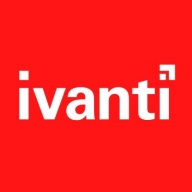

Microsoft Intune and Ivanti Avalanche compete in the field of device management solutions. Microsoft Intune seems to have the upper hand due to its seamless integration within the Microsoft ecosystem, offering substantial cost savings and enhanced management capabilities.
Features: Microsoft Intune integrates well with Office 365, Azure, and other Microsoft services, enables cloud-based management without the need for additional apps, and provides conditional access to strengthen security. Ivanti Avalanche focuses on remote control and package delivery, simplifying management of diverse devices and improving efficiency.
Room for Improvement: Microsoft Intune could enhance its reporting capabilities, extend policy support for Android, improve Linux system integration, and refine remote control features. Ivanti Avalanche needs to be more flexible and affordable, especially in managing Android devices efficiently.
Ease of Deployment and Customer Service: Microsoft Intune's cloud operation simplifies deployment within Microsoft environments, though customer support varies in quality. Ivanti Avalanche's on-premises and hybrid cloud focus offers straightforward support with fewer escalation issues.
Pricing and ROI: Microsoft Intune offers cost-effectiveness, especially when bundled with Microsoft products, providing significant ROI through integration benefits and reduced reliance on additional tools. Ivanti Avalanche, while more expensive, justifies its cost with functionality, particularly concerning Android management, offering clear ROI through improved management.
| Product | Market Share (%) |
|---|---|
| Microsoft Intune | 31.3% |
| Ivanti Avalanche | 0.6% |
| Other | 68.1% |


| Company Size | Count |
|---|---|
| Small Business | 116 |
| Midsize Enterprise | 46 |
| Large Enterprise | 152 |
Avalanche is rooted in managing the mobile computers that drive the supply chain. As those devices have evolved, Avalanche has continued to keep pace. So, whether you have legacy Windows CE devices deployed in your warehouse, or are looking to extend mobility to the showroom with today’s latest Android and iOS devices, Avalanche can manage them all.
Microsoft Intune provides centralized management of mobile devices and applications, ensuring security, compliance, and productivity through integration with Microsoft services like Microsoft 365 and Azure Active Directory.
Organizations use Intune for managing mobile devices and applications, enhancing security and compliance across platforms. With features like single sign-on, conditional access, and zero-touch deployment via Autopilot, it facilitates efficient operations. Intune's scalability, easy enrollment, and capabilities such as remote wipe support diverse device management, offering robust data protection and efficient operation. Despite its features, improvement areas include reporting, compatibility with non-Microsoft devices, and better support for macOS and Linux devices.
What are the key features of Microsoft Intune?
What benefits should users look for in reviews?
In industries such as finance, healthcare, and education, Microsoft Intune is implemented to ensure secure and compliant device management. Companies leverage its capabilities to deploy security policies and manage both corporate-owned and BYOD environments, facilitating a unified approach to data protection and compliance.
We monitor all Enterprise Mobility Management (EMM) reviews to prevent fraudulent reviews and keep review quality high. We do not post reviews by company employees or direct competitors. We validate each review for authenticity via cross-reference with LinkedIn, and personal follow-up with the reviewer when necessary.